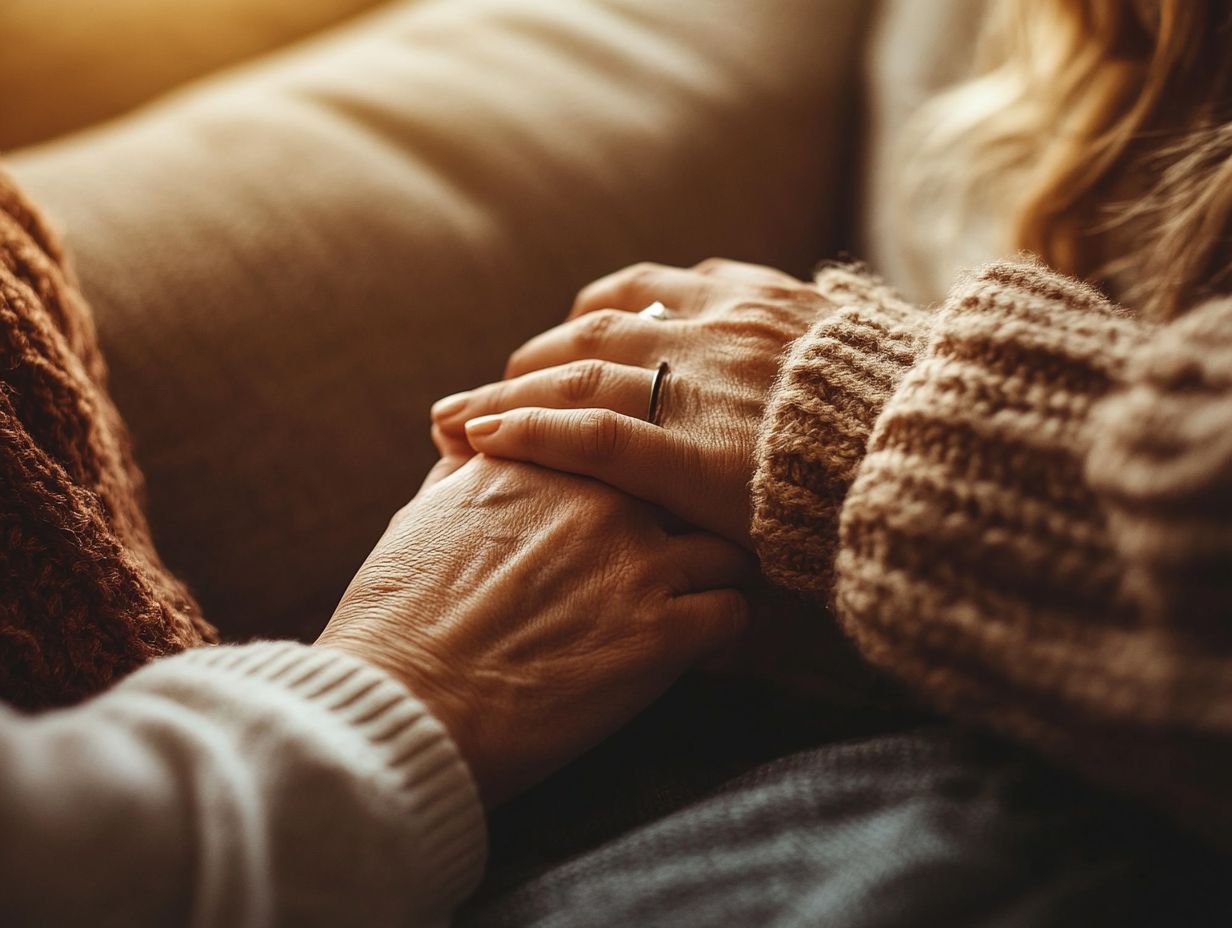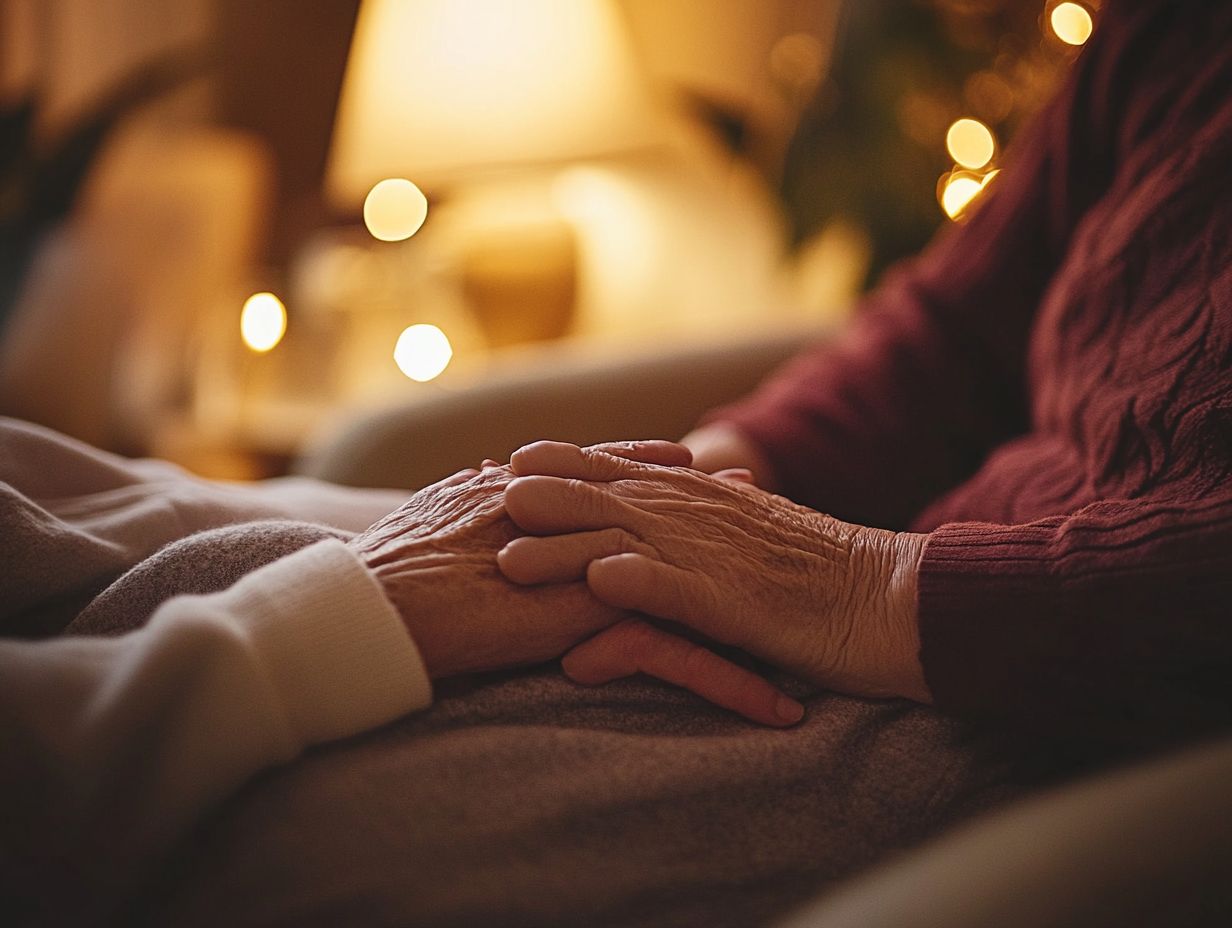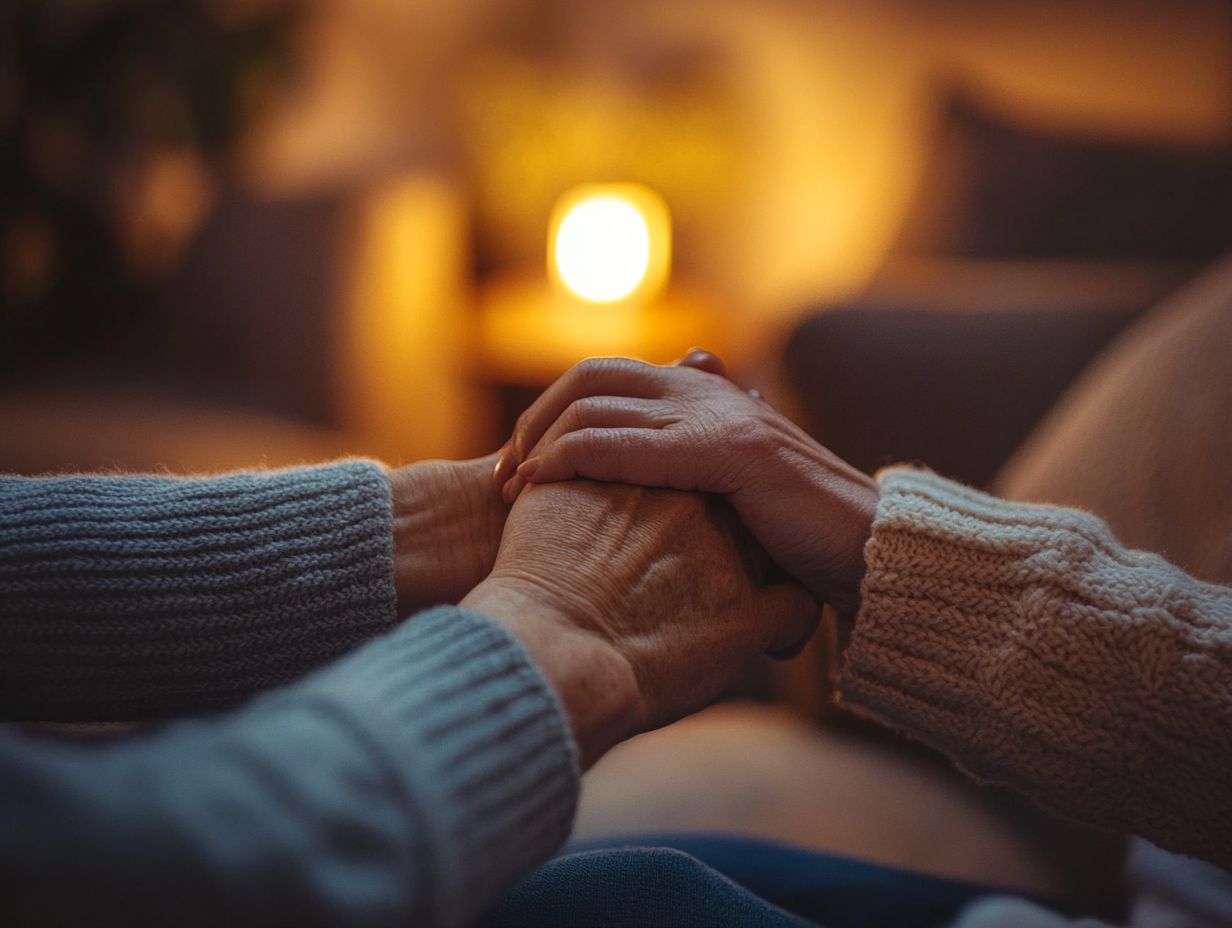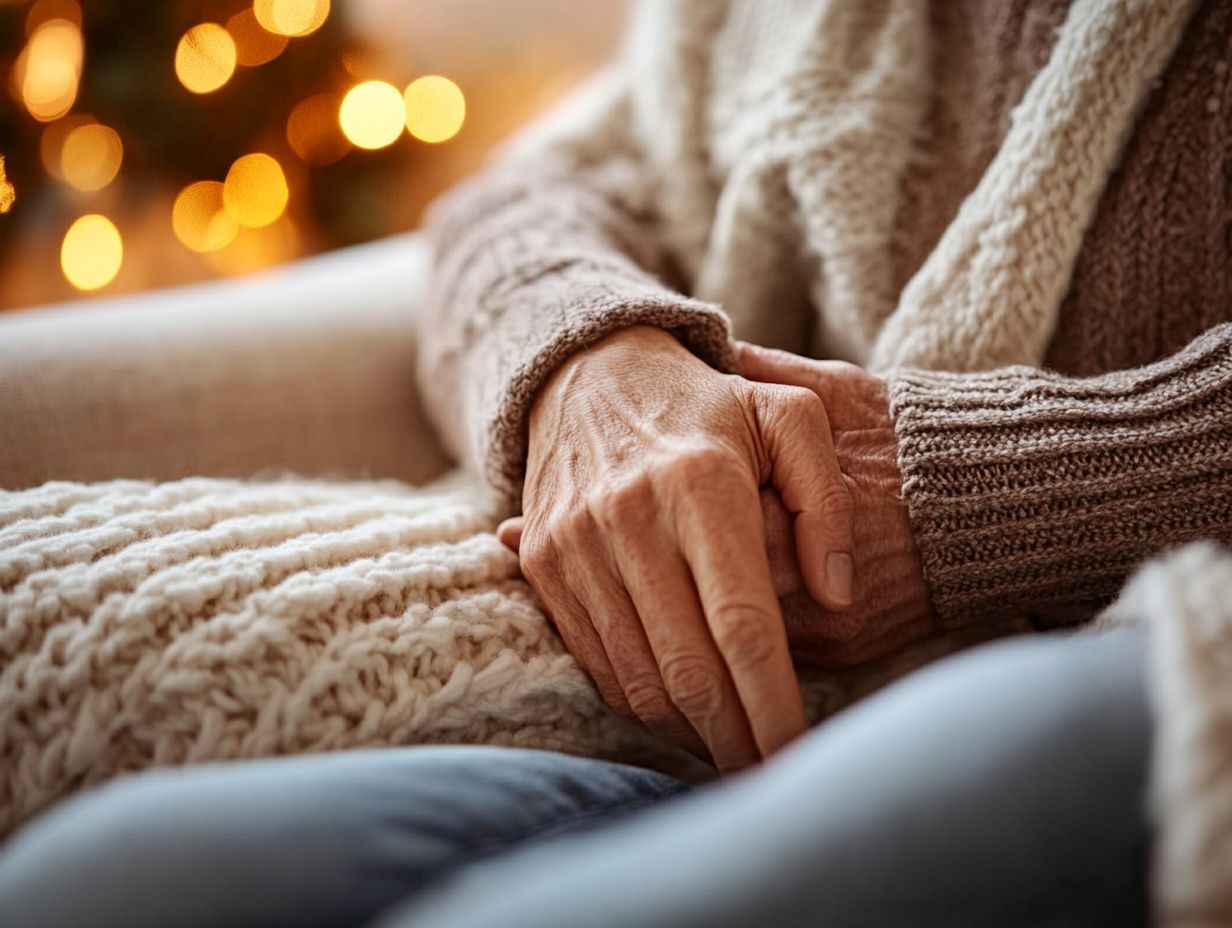Caregivers hold a pivotal role in the cancer recovery process by providing essential emotional support and managing complex medical tasks, such as cancer treatment and follow-up care. Their involvement ensures effective communication with healthcare teams, adherence to treatment plans, and overall quality of care, fostering improved physical recovery and emotional well-being for patients.
Understanding the multifaceted responsibilities of caregivers highlights their importance in facilitating medication management, coordinating treatments, and appointments, and creating a supportive healing environment. Moreover, caregivers address both the physical and emotional needs of patients, offering companionship and reassurance that significantly enhances the quality of life. This includes adapting to the new normal that comes with physical changes and emotional challenges.
Additionally, establishing a robust support network for both patients and caregivers is crucial. This network, comprising family, friends, and healthcare professionals, plays a vital role in maintaining resilience and ensuring comprehensive care. Family involvement is key to effective decision making and enhancing the quality outcomes of the caregiving process.
Caregivers are also encouraged to prioritize self-care to sustain their emotional resilience and caregiving effectiveness throughout the cancer journey. This involves self-management and addressing personal needs to maintain caregiver well-being.
Key Takeaways:
The Importance of Caregivers in Cancer Recovery

Caregivers play a crucial role in cancer recovery by providing emotional support and assisting with medical tasks.
Caregivers facilitate communication with healthcare teams, manage follow-up care, and maintain the quality of care for patients.
Caregivers enhance both physical recovery and emotional well-being by creating a supportive environment for healing.
Understanding the Role of Caregivers
Caregivers in the cancer recovery process provide practical and emotional support by administering medications, monitoring symptoms, and ensuring adherence to treatment plans. They play significant caregiver roles in the management of physical changes and side effects associated with treatment.
Emotional support from caregivers helps manage stress and anxiety, creating a positive healing environment. Their communication skills and caregiver training equip them to address mental health concerns effectively.
Caregiver training equips them with skills in communication, empathy, and problem-solving to enhance care quality. This training also includes understanding health insurance and legal issues that may arise during the caregiving process.
Supporting the Physical and Emotional Needs of Patients
Supporting cancer patients involves addressing both physical needs, such as managing treatment side effects, and emotional needs through counseling and support groups. Engaging in outpatient treatment and ensuring continuous follow-up care are crucial elements of this support.
Caregivers play a crucial role by assisting with daily activities and providing emotional reassurance.
Effective support helps improve patients’ quality of life and fosters a positive caregiving environment.
Providing Care and Assistance
Providing care and assistance to cancer patients involves managing medications, appointments, and offering companionship during treatment. Caregivers work closely with nurses and the healthcare team to ensure quality of care and effective recovery.
Caregivers monitor vital signs, administer injections, and coordinate follow-up care with doctors to ensure treatment adherence. Effective communication with the healthcare team is essential for managing ongoing treatments.
Emotional support from caregivers helps improve the quality of life and reduces feelings of isolation for cancer patients.
Addressing Mental Health and Emotional Support

Addressing mental health and emotional support is crucial for cancer patients and caregivers.
Feelings of anxiety and depression impact treatment, and caregivers experience stress.
Providing therapy, mindfulness, and educational workshops helps manage emotional challenges.
Support groups offer a safe space for sharing and encouragement.
Addressing these needs promotes holistic wellness during the cancer journey.
Managing Medications and Treatments
Managing medications and treatments involves organizing and administering prescribed drugs and therapies to ensure effective cancer recovery.
This management requires caregivers to monitor dosages, schedule treatments, and adhere to follow-up care protocols.
Proper management ensures continuity of care and enhances treatment effectiveness.
Ensuring Proper Medication Management
Proper medication management for cancer patients involves systematically organizing and monitoring medication schedules to avoid complications and ensure consistent quality of care.
Caregivers use medication organizers and apps to track dosages and schedules.
Maintaining communication with healthcare providers allows timely adjustments to treatment plans.
Ensuring medication management enhances treatment adherence and supports recovery for cancer patients.
Assisting with Treatments and Appointments
Assisting cancer patients with treatments and appointments involves caregivers scheduling medical appointments and providing transportation to ensure timely treatment access.
Caregivers help patients by coordinating with healthcare providers and facilitating communication.
Support from caregivers reduces stress and enhances treatment understanding for patients. They help navigate complex healthcare systems and manage any arising emotional or mental health issues.
Creating a Support System for the Patient and Caregiver

Creating a support system for patients and caregivers involves establishing communication channels, providing emotional and practical assistance, and connecting with community resources. Support groups and resources for adult children can be invaluable during this process.
- To create a support system, start by forming a network of family, friends, and healthcare professionals to offer regular check-ins and assistance with daily tasks.
- Join support groups and online communities to share experiences and advice.
- Utilize community resources like counseling services, respite care, and educational materials to address emotional and practical needs.
Building a Support Network
Building a support network involves creating a team of caregivers, family, and friends to share responsibilities and provide emotional support during treatment.
Support networks enhance communication, reduce caregiver isolation, and improve care quality.
Engaging with local support groups, community events, or online forums helps caregivers access resources and connect with others in similar situations.
Support networks are essential for maintaining resilience and ensuring emotional and practical assistance for both caregivers and patients.
Taking Care of Yourself as a Caregiver
Taking care of yourself as a caregiver involves prioritizing self-care to maintain well-being and improve care quality for cancer patients.
Caregivers manage stress and anxiety by implementing self-care strategies like exercise, meditation, and seeking support.
These practices enhance emotional resilience and ensure effective caregiving.
Frequently Asked Questions
What is the role of caregivers in cancer recovery?

Caregivers play a crucial role in the recovery process of cancer patients by providing physical, emotional, and practical support.
What are the responsibilities of caregivers in cancer recovery?
Some common responsibilities of caregivers include helping with daily tasks, providing transportation to appointments, managing medications, and providing emotional support.
How can caregivers help cancer patients during treatment?
Caregivers can help by providing emotional support, assisting with appointments and medications, helping with household tasks, and being a source of comfort and encouragement.
What are some challenges that caregivers may face during cancer recovery?
Caregivers may face physical and emotional exhaustion, financial burden, and changes in their own daily routines and responsibilities.
How can caregivers take care of themselves while caring for a cancer patient?
It is important for caregivers to prioritize self-care by taking breaks, seeking support from others, and maintaining their own physical and emotional well-being. Engaging in activities that promote caregiver well-being is essential for sustaining effective caregiving practices.
What resources are available for caregivers in cancer recovery?
There are support groups, counseling services, and online resources specifically for caregivers of cancer patients, as well as organizations that offer practical assistance and respite care. These resources can address both the mental health and financial aspects of caregiving.



